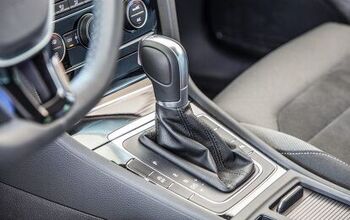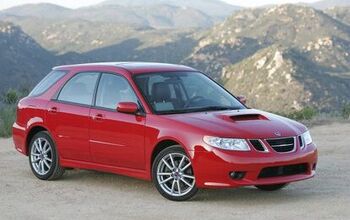3 Views
Piston Slap: How Reliable Are Reliability Indexes?

by
Sajeev Mehta
(IC: employee)
Brian writes:Hi there — I’ve been doing a lot of research (Googling) as of late to truly understand car reliability. I’ve been reading through sites like Carcomplaints.com, Truedelta.com, Consumer Reports, JD Power, specific car model forums, etc. What I really want to is, how accurate is this information? For example, you can look on Car Complaints and see that some models have awful reliability, but then you dig into it and realize it’s only five reported incidences of the same problem. And then you look at other websites that barely mention this particular problem.So what gives? Even if it is a major problem, what are the chances you would end it up with it if you bought that particular model and year?
- Manufacturer recall and TSB data
- Short Term Customer Satisfaction data from third party information sources (like JD Power)
- In-warranty repair and part number interchange and supersession data from manufacturers. (Honda, Toyota, Nissan, GM, Ford, etc)
- Post-warranty repair data from all franchised dealerships and independent repair facilities. (Sears Auto, Goodyear, Firestone, etc)
- Inventory churn rate from major auto parts manufacturers (Bosch, BWD, Denso, etc) and auto recyclers. (Car-Part.com, LKQ)
- Keyword density or Word Cloud analytics on all automobile forums and major social media websites (Twitter, Facebook, Instagram, etc.)
#Carcomplaints.com
#ConsumerReports
#JDPower
#Parts
#Recalls
#ReliabilityIndex
#Repair
#Truedelta.com
#Tsb

Sajeev Mehta
More by Sajeev Mehta
Published January 24th, 2017 8:14 AM
Latest Car Reviews
Read moreLatest Product Reviews
Read moreRecent Comments
- Redapple2 Love the wheels
- Redapple2 Good luck to them. They used to make great cars. 510. 240Z, Sentra SE-R. Maxima. Frontier.
- Joe65688619 Under Ghosn they went through the same short-term bottom-line thinking that GM did in the 80s/90s, and they have not recovered say, to their heyday in the 50s and 60s in terms of market share and innovation. Poor design decisions (a CVT in their front-wheel drive "4-Door Sports Car", model overlap in a poorly performing segment (they never needed the Altima AND the Maxima...what they needed was one vehicle with different drivetrain, including hybrid, to compete with the Accord/Camry, and decontenting their vehicles: My 2012 QX56 (I know, not a Nissan, but the same holds for the Armada) had power rear windows in the cargo area that could vent, a glass hatch on the back door that could be opened separate from the whole liftgate (in such a tall vehicle, kinda essential if you have it in a garage and want to load the trunk without having to open the garage door to make room for the lift gate), a nice driver's side folding armrest, and a few other quality-of-life details absent from my 2018 QX80. In a competitive market this attention to detai is can be the differentiator that sell cars. Now they are caught in the middle of the market, competing more with Hyundai and Kia and selling discounted vehicles near the same price points, but losing money on them. They invested also invested a lot in niche platforms. The Leaf was one of the first full EVs, but never really evolved. They misjudged the market - luxury EVs are selling, small budget models not so much. Variable compression engines offering little in terms of real-world power or tech, let a lot of complexity that is leading to higher failure rates. Aside from the Z and GT-R (low volume models), not much forced induction (whether your a fan or not, look at what Honda did with the CR-V and Acura RDX - same chassis, slap a turbo on it, make it nicer inside, and now you can sell it as a semi-premium brand with higher markup). That said, I do believe they retain the technical and engineering capability to do far better. About time management realized they need to make smarter investments and understand their markets better.
- Kwik_Shift_Pro4X Off-road fluff on vehicles that should not be off road needs to die.
- Kwik_Shift_Pro4X Saw this posted on social media; “Just bought a 2023 Tundra with the 14" screen. Let my son borrow it for the afternoon, he connected his phone to listen to his iTunes.The next day my insurance company raised my rates and added my son to my policy. The email said that a private company showed that my son drove the vehicle. He already had his own vehicle that he was insuring.My insurance company demanded he give all his insurance info and some private info for proof. He declined for privacy reasons and my insurance cancelled my policy.These new vehicles with their tech are on condition that we give up our privacy to enter their world. It's not worth it people.”


































Comments
Join the conversation
My True Delta garage had only uncommon vehicles. WRX, 92-X, Accord Hybrid V6. So I get multiple hounding Emails. Now I have added a Forester XT, I am doing my part making the results less skewed toward the enthusiast side.
The data doesn't matter, we saw that in the G8 GT story. Because the Piston Slap writer and Bark responding to the question had bad experiences with the G8 GT, the car must be a piece of crap. When it was presented that JD Power long term, True Delta, and Consumer Reports all indicate the 09 G8 GT has almost top of the pile reliability from all three surveys, the response was, "LOLZ." Literally. So let your personal bias fly, that's what matters. VWs are as reliable as a rock, if you believe that replacing ignition coils at 30K miles is standard maintenance and if burning enough oil to almost be a diesel engine from new are marks of reliability. GM is hopelessly lousy for reliability because a GM will run badly than most vehicles will run at all. Honda's are of course perfect, if you ignore seat belts that don't let you out, self-destructing 5-speed automatics, airbags that kill you, and a litany of issues with recent product releases like the Civic. Hey man, it's a Honda. Nothing beats BMW reliability if you believe replacing the entire front suspension of a vehicle is normal maintenance (well admittedly at SOME POINT it is) and exploding fuel pumps are normal. You can go on and on. We live in a universe of #alternatefacts and none of these sources know what you're talking about. So ask your friend, ask your neighbor, and don't dare do any real objective research which might go against your bias. LOLZ